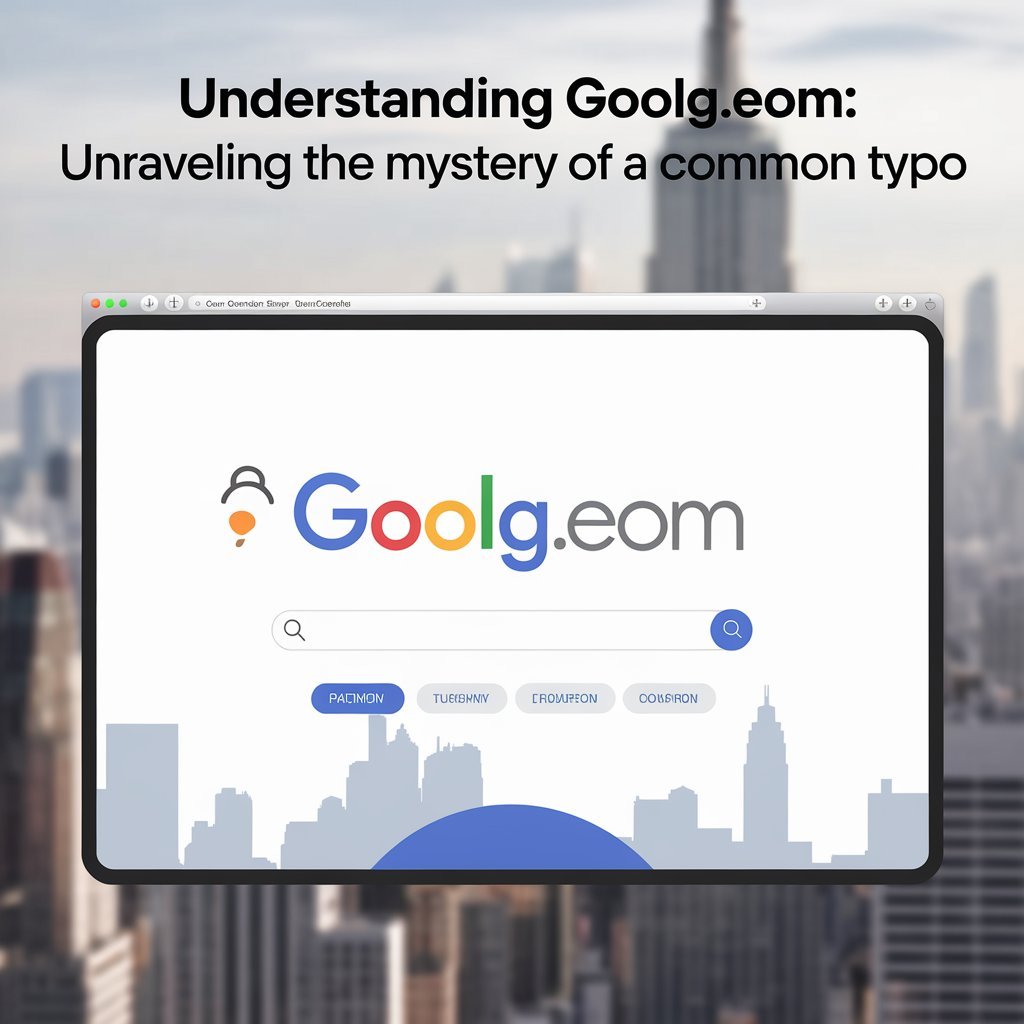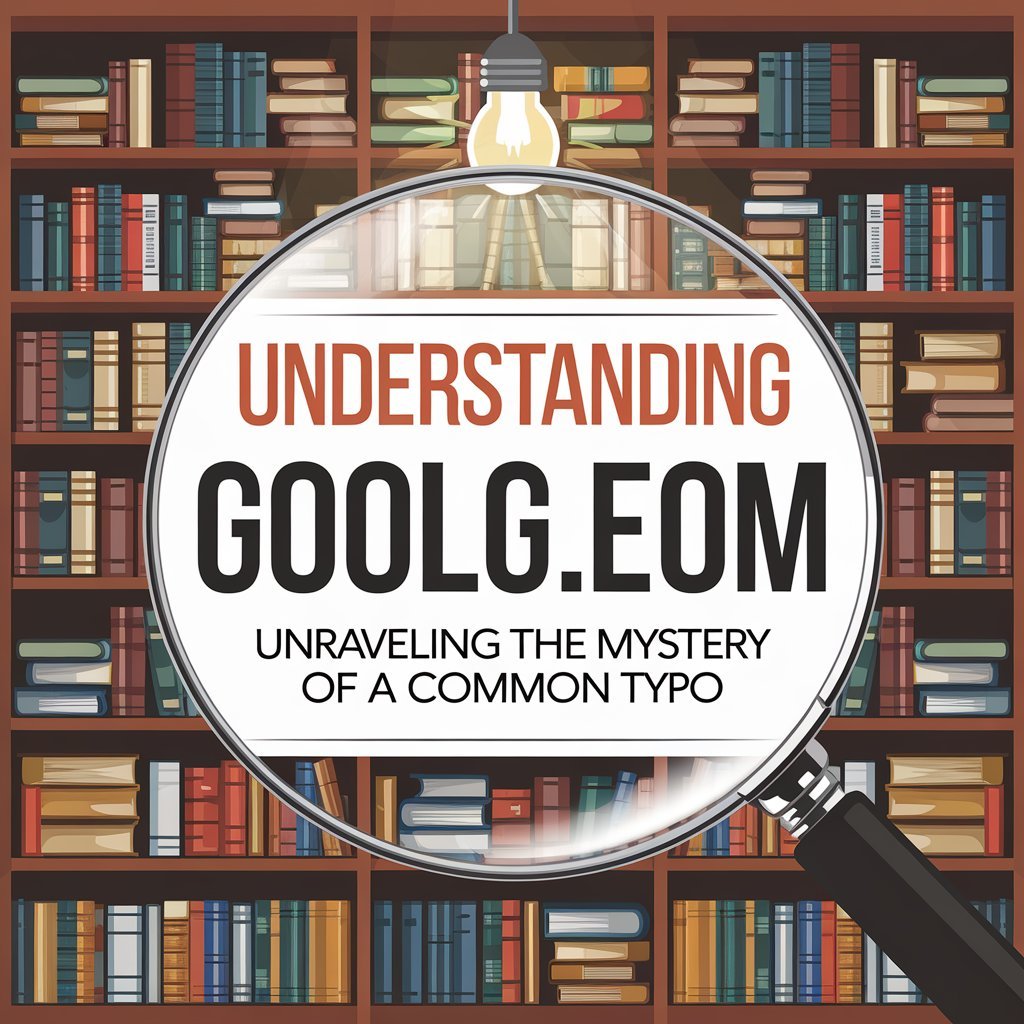The term “goolg.eom” may initially seem like a mere typographical error, but it holds more significance in the realms of SEO and digital marketing than one might think. This article explores what “goolg.eom” represents, its implications for online safety, and strategies businesses and individuals can adopt to navigate the complexities of such keywords effectively. By demystifying this concept, we aim to provide valuable insights for optimizing content and enhancing online security.
Table of Contents
What Is Goolg.eom?
In simple terms, “goolg.eom” is a misspelling of “google.com.” Such errors typically occur due to typing quickly or inattentively, and while they might seem inconsequential, they can lead to unexpected outcomes. Instead of resulting in a harmless 404 error, users typing “goolg.eom” may inadvertently land on fraudulent or dangerous sites.

The Risks of Typographical Errors
Typos like “google.eom” can be exploited by cybersquatters—individuals or entities that register domain names resembling popular websites with the intention of tricking users. These malicious sites often mimic the appearance of legitimate platforms, putting users at risk of phishing scams or other online threats. Therefore, even seemingly innocuous misspellings can lead to serious consequences if users are not cautious.
The Enigma of Goolg.eom
Upon first glance, “goolg.eom” appears to be a simple typo, likely intended as “google.com.” Such errors are common and often become keywords themselves due to frequent user mistakes, resulting in a phenomenon known as typo squatting. This involves registering domain names that closely resemble popular websites, often with the aim of misleading users. Understanding the background of “goolg.eom” is crucial for grasping its potential value and associated risks.
Why Do People Search for Goolg.eom?
It may seem puzzling why anyone would intentionally search for a misspelled version of “google.com.” Here are a few reasons:
Curiosity: Many users are naturally inquisitive, especially when encountering unusual terms. They might search for “goolg.eom” to discover its meaning or why it appears in search suggestions.
Typos and Auto-Correct: Occasionally, users accidentally type “goolg.eom” instead of the correct spelling. Search engines often suggest popular typos, inadvertently leading to more searches for these misspelled terms.
Scams and Cybersquatting: As previously noted, some individuals may have come across websites resembling Google but are, in fact, scams. They might search for “goolg.eom” to learn more about these suspicious sites.
Is Goolg.eom Safe?
The simple answer is: No, it isn’t safe.
Typing in “goolg.eom” or similar typos can direct users to phishing sites or malicious platforms that jeopardize personal information. These websites often imitate legitimate ones, including Google’s homepage, in an attempt to trick users into providing their login credentials or other sensitive data.
To safeguard yourself, always double-check URLs before hitting enter. A minor typo can lead to significant consequences. If you encounter a suspicious website, exit immediately and refrain from interacting with it.
The Implications of Typo Squatting
Typo squatting involves the registration of domain names that are similar to well-known sites, with the hope that users will mistakenly navigate to these sites. This practice can be dangerous, often leading to phishing scams, malware distribution, and other cyber threats. While some typo-squatted domains are indeed malicious, others may simply be parked by opportunistic domain investors. Therefore, it’s essential for users to approach domains like “goolg.eom” with caution.
SEO Strategies for Goolg.eom
From an SEO perspective, optimizing content for a keyword such as “goolg.eom” requires a strategic approach. Despite its unusual nature, the connection to a major entity like Google means it could garner significant attention. Content creators looking to target “goolg.eom” should focus on crafting high-quality, informative articles that educate readers about typo squatting and the potential risks involved. This approach not only helps improve ranking for the keyword but also adds substantial value to the reader.
Creating Engaging Content Around Unusual Keywords
Producing content based on unusual keywords like “goolg.eom” requires creativity and a deep understanding of the target audience. The aim should be to offer practical information relevant to the keyword while ensuring that the content is engaging and informative. One effective tactic is to weave “goolg.eom” into broader discussions about internet safety, SEO practices, or the impact of typographical errors in digital marketing. This method keeps the content relevant and attracts the interest of readers who may not be specifically searching for “goolg.eom.”
The Importance of Monitoring Keyword Performance
Once content is created and published, monitoring the performance of the keyword “goolg.eom” is crucial. This includes tracking its ranking on search engines, analyzing traffic data, and adjusting content strategies as necessary. Keywords like “goolg.eom” may exhibit fluctuating performance due to their niche nature, so continuous optimization is vital for maintaining visibility and relevance.
Protecting Yourself from Typosquatting
Here are some practical tips to help protect yourself from the threats associated with typosquatting:
Bookmark Important Sites: Instead of typing URLs, bookmark frequently visited websites. This practice minimizes the risk of typos and ensures you access the correct pages.
Utilize Auto-Fill Features: Most modern browsers offer auto-fill features that complete URLs as you type, reducing the chances of making mistakes.
Be Cautious of Pop-Ups: If you land on a website that seems unusual or bombards you with pop-ups, exit immediately. Legitimate sites typically do not overwhelm users with pop-ups.
Install Security Software: Reliable antivirus software can detect and block malicious websites before they cause harm.

Conclusion
In summary, the term “goolg.eom” serves as a reminder of the significance of typos in the digital landscape. Understanding its implications, recognizing the risks associated with typographical errors, and implementing effective SEO strategies can enhance both online safety and search engine visibility. By staying informed and cautious, users can navigate the complexities of the internet with greater confidence.
FAQs About Goolg.eom
1. What is the meaning of “goolg.eom”?
“Goolg.eom” is a common misspelling of “google.com.” It often occurs due to typographical errors when users are typing the URL quickly or without paying full attention.
2. Is it safe to visit websites that include “goolg.eom”?
No, visiting “goolg.eom” or similar misspelled URLs can be unsafe. Many such sites may be set up to look like legitimate pages but can actually lead to phishing scams or malicious content designed to steal personal information.
3. What is typo squatting?
Typo squatting is a practice where individuals register domain names that closely resemble popular websites, hoping that users will accidentally type these misspelled URLs. This can lead to malicious sites that aim to deceive users.
4. Why do people search for misspellings like “goolg.eom”?
People may search for “goolg.eom” out of curiosity, due to accidental typing errors, or to investigate scams they’ve encountered that use similar domain names. Search engines also suggest common typos, prompting more searches.
5. Can optimizing for “goolg.eom” improve my website’s SEO?
Yes, optimizing for “goolg.eom” can be beneficial. While it may seem like a low-competition keyword, its association with a major entity like Google can attract significant traffic. Creating informative content about typo squatting and online safety can enhance your site’s visibility.
For any kind of updates please visit legwarmer



